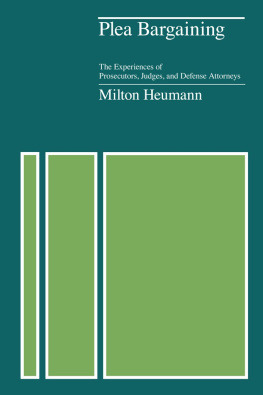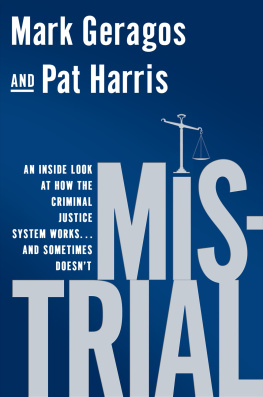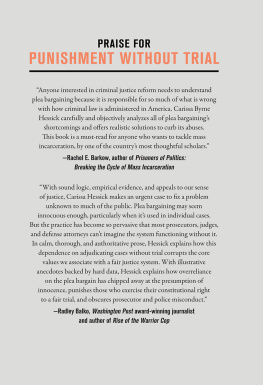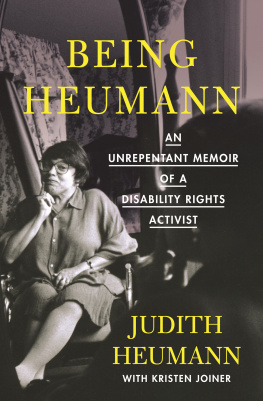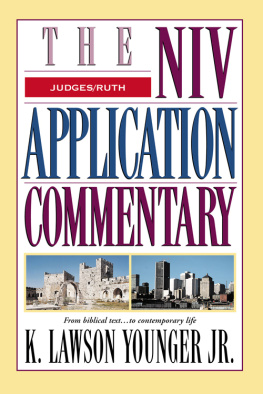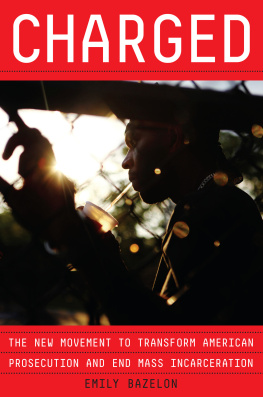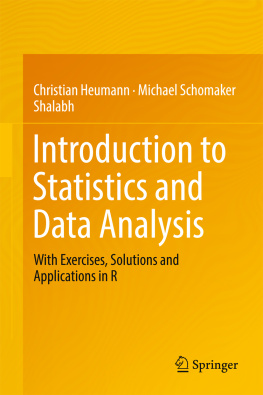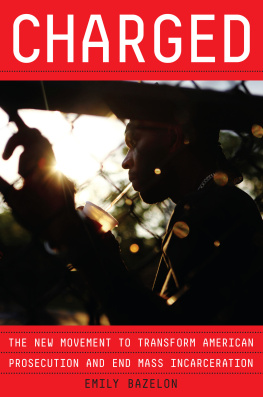The University of Chicago Press, Chicago 60637
The University of Chicago Press, Ltd., London
1977, 1978 by The University of Chicago
All rights reserved. Published 1978
Paperback edition 1981
Printed in the United States of America
02 01 00 99 7 8 9 10 11
ISBN 0-226-33188-1 (paper)
ISBN 978-0-226-77824-2 (ebook)
Unrevised portions of were originally published in Law and Society Review 9, no. 3 (Spring 1975): 51528. 1975 by The Law and Society Association.
Library of Congress Cataloging in Publication Data
Heumann, Milton.
Plea bargaining.
Bibliography: p.
Includes index.
1. Plea BargainingUnited States. 2. Criminal statisticsConnecticut. I. Title.
KF9654.H4 345.73072 77-9970

The paper used in this publication meets the minimum requirements of the American National Standard for Information SciencesPermanence of Paper for Printed Library Materials, ANSI Z39.48-1984.
Plea Bargaining
The Experiences of Prosecutors, Judges, and Defense Attorneys
Milton Heumann
The University of Chicago Press
Chicago and London
For my mother and father
Contents
Acknowledgments
I am indebted to many institutions and individuals for assistance at various stages of this research project. Yale Universitys Institution for Social and Policy Studies, the University of Michigans Horace H. Rackham School of Graduate Studies, and the American Motors Corporation Fund provided the financial support necessary to transcribe the interviews and to type the manuscript. The Department of Political Science of the University of Michigan surrounded me with colleagues and students whose advice and encouragement were of great aid in revising draft upon draft. I am especially appreciative of the assistance of Norman Ankers, Ron Burda, Al Cover, Wayne Hillyard, and Dan Levine.
The prosecutors, defense attorneys, judges, court clerks, bailiffs, secretaries, bondsmen, and defendants whose comments are reported in this study must remain anonymous. But their contributions were invaluable, and without their cooperation, this study would still be a proposal for future research. I am particularly grateful to the public defenders of one of the circuit and superior courts included in my sample, and to one very distinguished circuit court judge. In addition to their thoughts, these individuals offered me friendship, office space, and enthusiasm. I hope the end product justifies their efforts.
I had the benefit of working closely with two individuals on this project: Professor Jonathan Casper of Stanford University and Professor David Mayhew of Yale University. Their assistance extended above and beyond any formal academic relationship. They read, criticized, and evaluated my draft chapters in an extraordinarily brief period of time, and with great insight. Their friendship and encouragement, as well as their academic advice, were crucial to the completion of this book.
My wife, Elaine, has lived with this study for more years than we care to contemplate. She has endured the anguish and frustration when chapters have gone awry, when ideas have faltered, when confidence has waned, and has done so with a reservoir of cheer, confidence, and advice. Only others who have experienced the total absorption that a study such as this requires can fully appreciate the contribution of ones spouse. No words can adequately describe the contributions that Elaine has made. I know, though, that without her, I would have neither a manuscript nor happiness. With her, I have both.
Introduction
Plea bargaining is the process by which the defendant in a criminal case relinquishes his right to go to trial in exchange for a reduction in charge and/or sentence.
In this book I am concerned with one aspect of these plea bargaining courts. Specifically, I will explore the postrecruitment adaptation of new prosecutors, defense attorneys, and judges to the plea bargaining court. How do newcomers adjust to plea bargaining? What is the adaptation process and what are its substantive outcomes?
Three factors influenced my decision to choose this research problem. First, there is a curious gap in the local court literature between the material on recruitment of personnel to the courts and the discussion of the internal plea bargaining dynamics of the court. The recruitment studies end at the point where individuals are chosen for a court job; the internal dynamics literature begins with a cross-sectional view of the court and discusses the way experienced personnel process cases. Very little work has been done on what happens to the newcomer after he is recruited and before he becomes a seasoned plea bargainer. And there are simply no systematic studies of why (or if) a novice to the criminal court is transformed into the eager-beaver plea bargainer portrayed in studies that concentrate on the internal dynamics of plea bargaining.
The second factor that influenced the choice of this problem was my disenchantment with the internal dynamics of plea bargaining literature itself. As will be demonstrated in I felt that by studying newcomer adaptation to the plea bargaining system, I could test the efficacy of the case-pressure explanation.
Finally, a policy concern directed my interest toward plea bargaining. Within a span of six years, two national commissions have considered the merits and justifications for plea bargaining, one concluding that plea bargaining is the vital force that keeps criminal cases moving through the courts, Again, I hope that my detailed inquiry into newcomer adaptation and my exploration of the efficacy of the case-pressure hypothesis will yield some insights useful for evaluating these divergent conclusions, and more generally be of import for generating realistic policy recommendations about plea bargaining.
Adaptation and the Organizational Context
As used here, adaptation refers to the process in which a newcomer learns and is taught about his role obligations, and the related process in which he translates these obligations into a perspective on plea bargaining. Included in the inquiry into adaptation are both attitudinal and behavioral changes. Thus, I will trace the evolution of the newcomers attitudes toward his role and toward plea bargaining and will detail changes in his actual role and plea bargaining behavior.
This description of adaptation parallels many definitions of socialization found in the literature, but I am more comfortable working with the former term. I will argue below that a significant portion of the newcomers adaptation can be explained without reference to the efforts of any such agents, that newcomers simply learn about an environment that differs from what they expected. Though socialization need not necessarily exclude this sort of learning, I think adaptation better captures the process which I am trying to describe, and I think it is less likely to evoke false connotative implications.
Newcomer adaptation will be discussed as being shaped by a learning and teaching component. The learning component refers to the newcomers discovery that the reality of the local criminal court differs from what
As will become clear when we discuss adaptation to the defense attorneys role, as well as to prosecutorial and judicial roles ( I will argue that much of the variance in newcomer adaptation is a function of the newcomers learning about his role and about the associated constraints that the realities of the case characteristics impose upon him. Though he is also taught some lessons about plea bargaining, and though failure to consider these would lead to an oversimplified perspective on newcomer adaptation, I will show that learning is at the heart of newcomer adaptation.
 The paper used in this publication meets the minimum requirements of the American National Standard for Information SciencesPermanence of Paper for Printed Library Materials, ANSI Z39.48-1984.
The paper used in this publication meets the minimum requirements of the American National Standard for Information SciencesPermanence of Paper for Printed Library Materials, ANSI Z39.48-1984.
